Question And Answer
Publications
Articles, publications, books, tools and multimedia features from the U.S. Institute of Peace provide the latest news, analysis, research findings, practitioner guides and reports, all related to the conflict zones and issues that are at the center of the Institute’s work to prevent and reduce violent conflict.
A World Without Nuclear Weapons: The International Dimension
On Tuesday, March 6, 2008, USIP hosted a wide-ranging discussion entitled "A World Without Nuclear Weapons: The International Dimension." The panelists included Ambassador Max Kampelman, distinguished lawyer, diplomat, and educator, as well as former vice chairman of the Institute’s board of directors; George Perkovich, vice president for studies – global security and economic development, at the Carnegie Endowment for International Peace; and Ambassador James Goodby, research fellow at the H...
Disabling DPRK Nuclear Facilities
While the October 3, 2007 Six-Party Talks accord outlines a roadmap for the disablement of North Korea’s core nuclear facilities, the specific details of the nuclear disablement process are still being developed. USIP’s Korea Working Group commissioned this Working Paper in order to facilitate a better understanding of nuclear disablement.
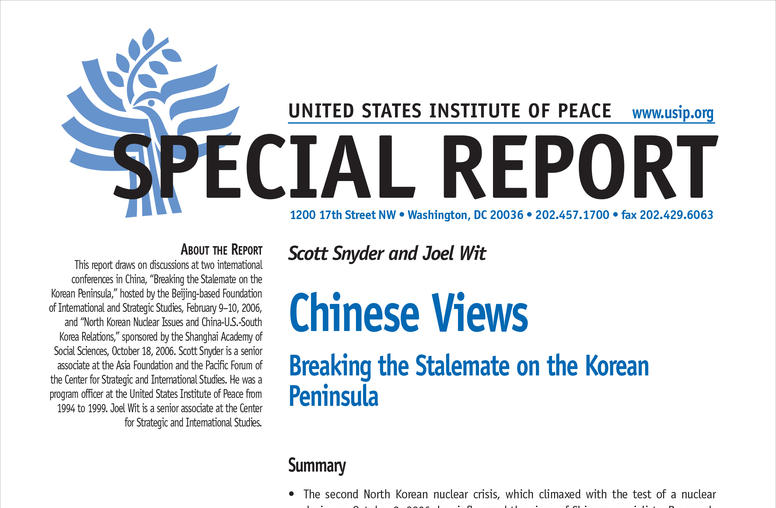
Chinese Views: Breaking the Stalemate on the Korean Peninsula
Drawing on two international conferences recently held in China, this report explores the influences relationships such as that between the U.S. and China have on the Korean peninsula.
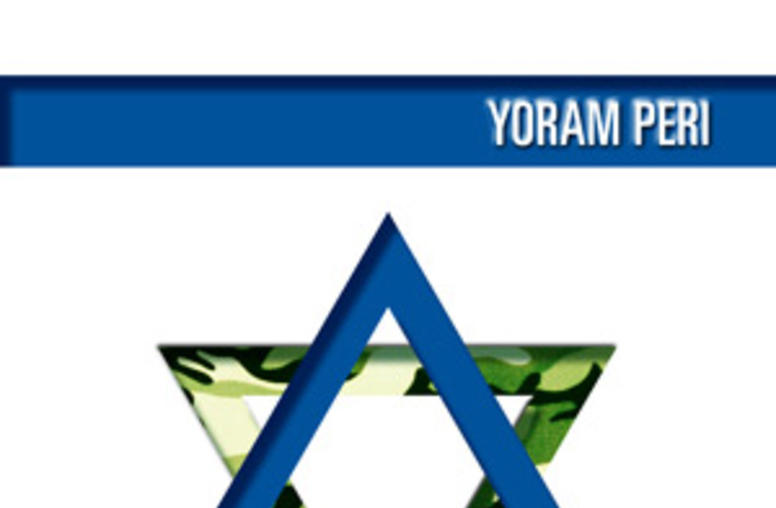
Generals in the Cabinet Room
Israel’s foremost analyst of civil-military relations identifies and investigates a dramatic shift of power within Israel’s political system. Where once the military was usually the servant of civilian politicians, today, argues Yoram Peri, generals lead the way when it comes to foreign and defense policymaking.
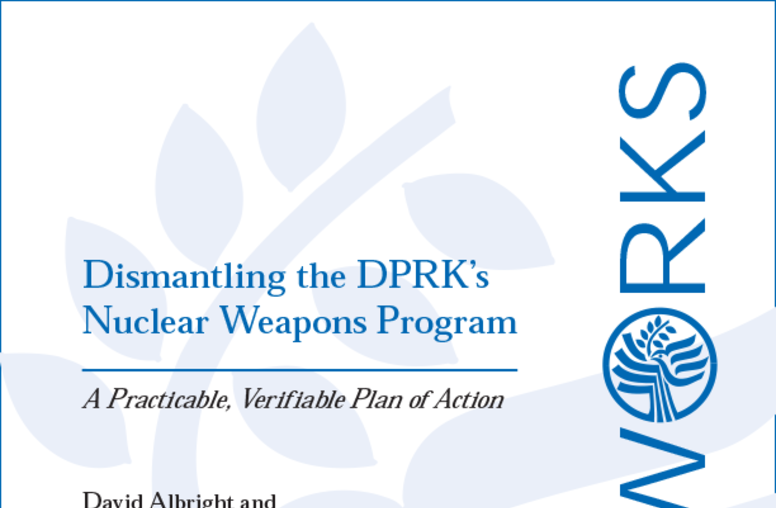
Dismantling the DPRK's Nuclear Weapons Program: A Practicable, Verifiable Plan of Action
Verified dismantlement of the nuclear weapons program of the Democratic People's Republic of Korea (DPRK) can be accomplished successfully. Although difficulties abound in reaching an agreement with the DPRK to achieve this goal, the methods and steps involved in the dismantlement process are well understood.
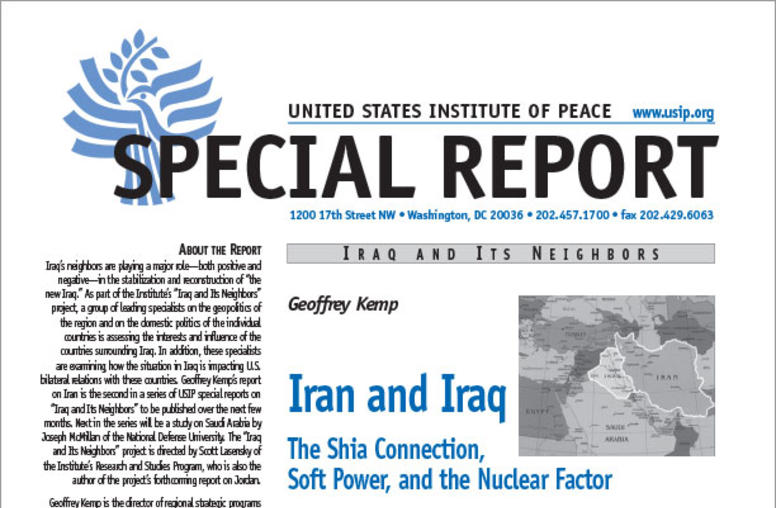
Iran and Iraq: The Shia Connection, Soft Power, and the Nuclear Factor
Summary Predominantly Shiite Iran emerges from the aftermath of Saddam Hussein's fall with considerable power and influence in Iraq as Iraqis themselves struggle to acquire a semblance of unity and forge a new political order acceptable to Iraq's three key groups: Shia, Kurds, and Sunnis. Iran's leaders meet with Iraq's most influential personality, Grand Ayatollah Ali al-Sistani; American diplomats do not meet with Sistani. Iraq's new elected leaders make visits to Tehran and negotia...
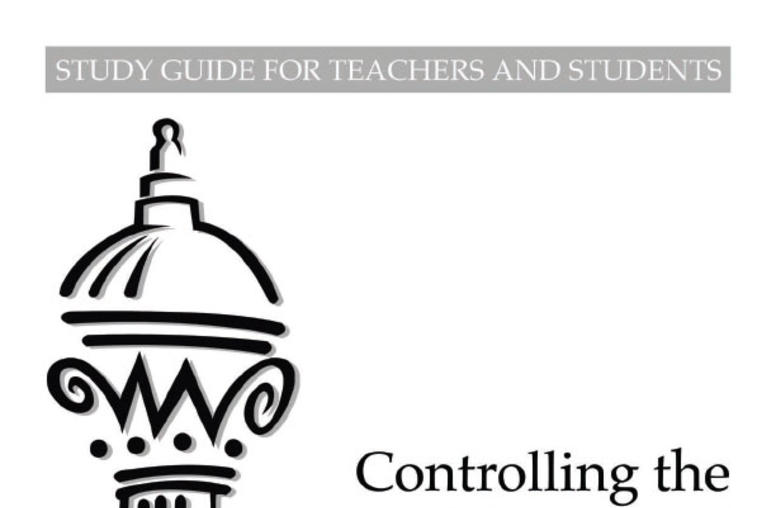
Controlling the Proliferation of Nuclear Weapons
This study guide assists teachers in increasing students' understanding of the prevalence and spread of nuclear weapons and familiarizes students with historic and contemporary measures to control nuclear proliferation and stimulates their thinking of potential strategies for doing so in the future.
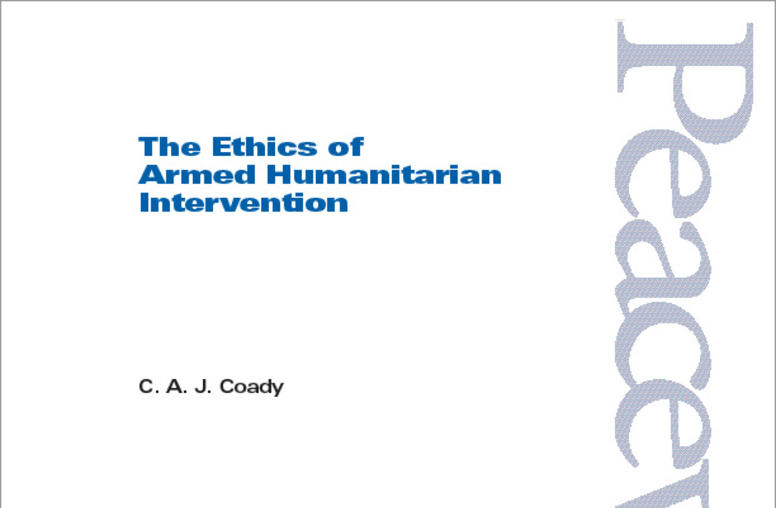
The Ethics of Armed Humanitarian Intervention
At the very beginning of the twenty-first century, two concerns ranked high on the military-political agenda of the Western world: humanitarian intervention and terrorism. This is an essay on the ethical issues surrounding the former.
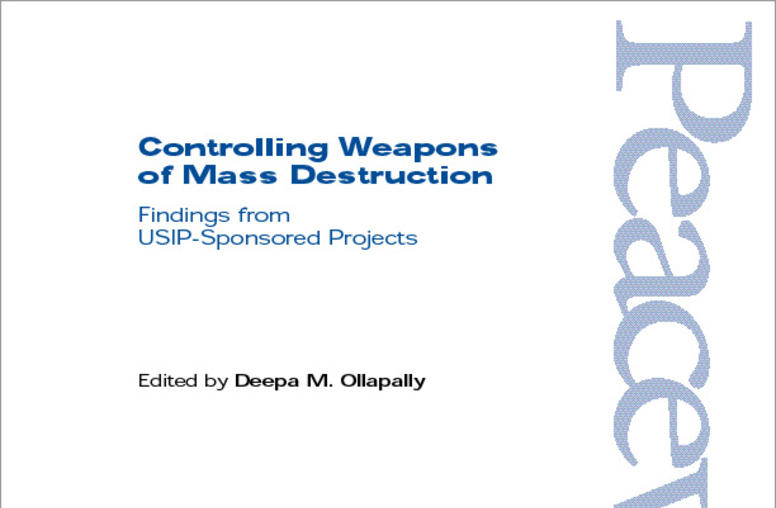
Controlling Weapons of Mass Destruction: Findings from USIP-Sponsored Projects
More than thirty years after the passage of the Nuclear Nonproliferation Treaty (NPT), the record is mixed on the effectiveness of the non-proliferation regime.
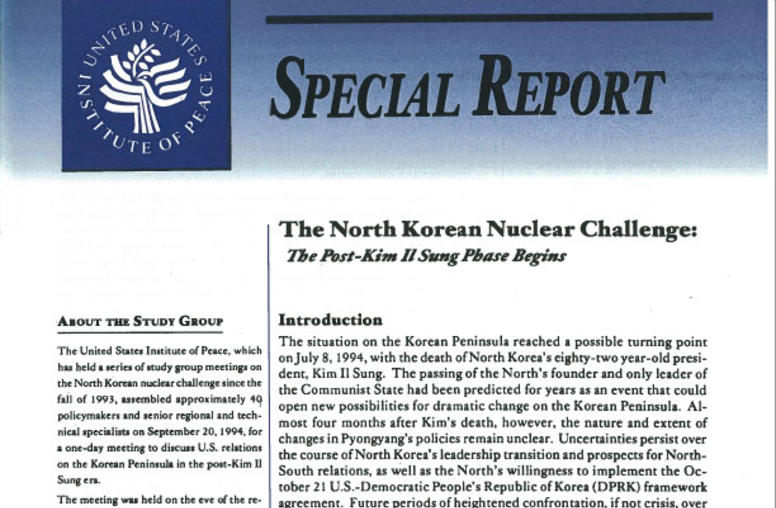
The North Korean Nuclear Challenge: The Post–Kim Il Sung Phase Begins
The situation on the Korean Peninsula reached a possible turning point on July 8, 1994, with the death of North Korea's eighty-two year-old president, Kim Il Sung. The passing of the North's founder and only leader of the Communist State had been predicted for years as an event that could open new possibilities for dramatic change on the Korean Peninsula. The United States, South Korea, and North Korea's other neighbors face significant challenges in determining policy adjustments that might...